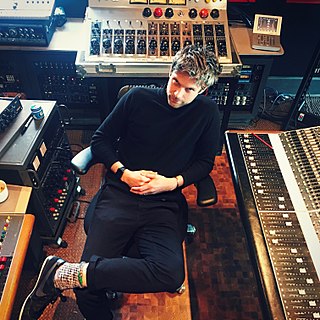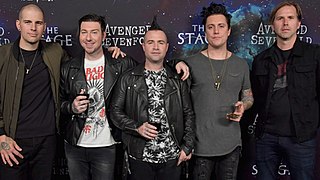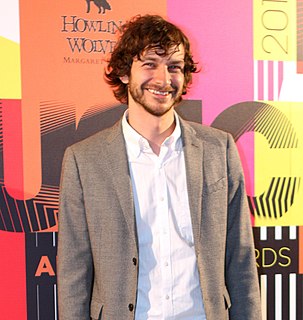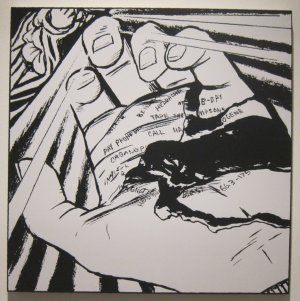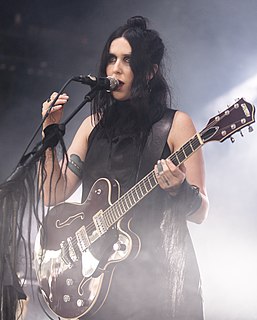A Quote by Jeffrey Lewis
What can you think when one review says "this album is brilliant, and all the songs flow into the utmost brilliant song 'The Upside-Down Cross'" then another review says "this album is brilliant, except for that horrible and pointless song 'The Upside-Down Cross'," and another review will say "Jeffrey really sounds confident and relaxed on this new album", the next reviewer says "Jeffrey sounds more depressed and awful than ever" - these totally contrasting reviews happen all the time!
Related Quotes
The only thing I can think of is my favorite album at the moment by this guy called Father John Misty, and the album is called I Love You, Honeybear. It's just brilliant. It's the album I'm currently obsessed with. It is original, and the lyrics are fantastic and [it's] brilliant. So that's blowing me away.
You're not going to hit it every single time, and that's why, when I record an album, I do probably close to 50 songs. Each song I record has to get better. If it's not better than the last song that I made, it'll usually linger for a couple of months, and then it'll be put on the backburner, and then there'll be another song that I do, and then it often doesn't make it on the album.
The first review our band ever got - when I was 17 years old and we had just released our first EP, and this tiny little magazine wrote a review on it, and for that month, we were the best album of the month, and we were also the worst album of the month. We won best and worst album of the month in the same magazine.
This 'Making Mirrors' album is far more personal, even if there's a character element to the sounds I'm working with. Every song on this album I stand behind; I feel like I have a close relationship with them. There are older songs where I can feel myself writing a story, so this is the first album where I'm proud of every lyric.'
Reviews are all bullshit, because they always change. When House of 1000 Corpses came out, all the reviews were awful. It was impossible to find a review better than "The worst movie ever made." And now I'll see more-modern magazines, and sometimes they'll re-review things, and I'll read this great review for it. It's the same thing with White Zombie! People talk about "Oh, White Zombie, these classic records. Why don't you do them now?" Everyone hated those records when they came out! The reviews were terrible.
I think on the first album, my aim was to write a good song and have a good melody, and I wanted lyrics that would connect with as many people as possible. On the second album, I took a lot more of a personal approach. I wasn't trying to make conventional, structured songs; I was really trying to get a lot of emotion and my own personal journey throughout it. I just focused more on being honest than getting the normal song structure down.
Incidentally, the very, very first review that James Lavelle and I saw of Endtroducing was very negative! It was in The Wire, and the context of the review was that, you know, Mo'Wax was so far behind Ninja Tune. Heheheh. And people wonder why there was this sense of a feud between labels! We just kind of looked at each other and we were like, 'Oh, well, let the floodgates open!' But, not to be facile, that was literally the last bad review I ever saw for that album.
One thing I noticed over time is that if I got a bad review, usually the bad part of it was at the very end. I could tell that nobody read the whole review because they would just say, "It was great to see the review!" In a way, my brain shuts down at the end of an article. It doesn't really want to go to the end.
I read the reviews sometimes, but I don't let it really affect the next album because, for me, when I approach an album, it's usually coming to me pretty naturally. It's not like I set out, like, "Okay, I'm going to write an album this month." It's more like I'm just always writing songs and eventually I start to realize that a group of songs sort of fits together, and I go from there in putting together the album and themes and artwork and things like that.



